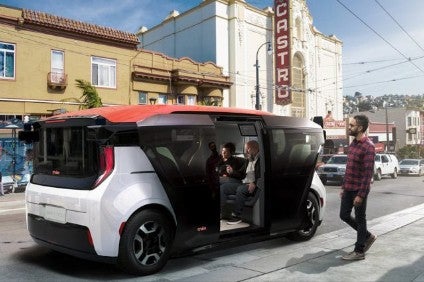
Cruise, the self driving car maker in which General Motors is the majority shareholder, has said it would seek US regulatory approval in coming months to deploy a limited number of Origin vehicles without steering wheels or pedals.
According to Reuters, Cruise would concurrently withdraw an exemption petition filed with the National Highway Traffic Safety Administration (NHTSA) in January 2018 seeking approval to deploy a limited number of similar autonomous vehicles based on the Chevrolet Bolt platform.

Discover B2B Marketing That Performs
Combine business intelligence and editorial excellence to reach engaged professionals across 36 leading media platforms.
NHTSA, which spent 15 months reviewing the GM petition before seeking public comment, said it “will review the new petition when it is received”, the news agency said.
Cruise unveiled the Origin, which only has two long seats facing each other that can comfortably fit four passengers, in January, Reuters noted, and GM plans to begin building the Origin in Detroit in late 2021 or early 2022.
Reuters said Robert Grant, Cruise VP of global government affairs, made the announcement after Cruise received a permit from the California Department of Motor Vehicles last week to be the first to test cars without any riders on San Francisco streets. Four other companies have permits to drive empty in Silicon Valley cities that are easier to navigate.
Under current US law, companies can seek an exemption from motor vehicle safety standards for up to 2,500 vehicles for up to two years that do not meet existing federal rules, the report noted.
The exemptions are for US vehicle safety rules, largely written decades ago [FMVSS], that assumed human drivers would be in control of a vehicle.
Reuters said GM had, in 2018, sought a temporary waiver on features like mirrors, dashboard warning lights and turn signals designed for a human driver and initially hoped to win approval to deploy the vehicles without human controls by the end of 2019.
NHTSA had been considering revising auto safety rules to remove “unnecessary regulatory barriers to the safe introduction of automated driving systems”.






